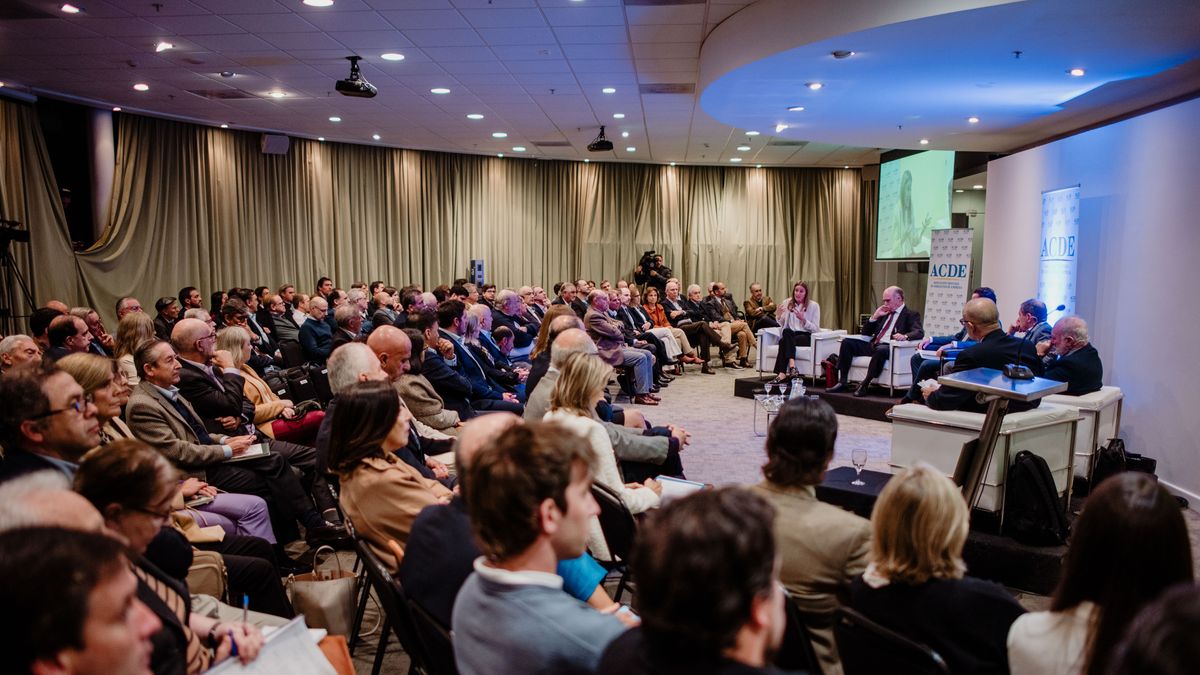The challenges you face Uruguay to hold a economic growth in the long term and make it inclusive, at a time when new technologies are advancing and there is a lack of highly qualified labor, were the focus of the expert debate organized by the Christian Association of Business Managers (ACDE).
The analysts, convened under the slogan “Keys for a greater sustained growth in Uruguay”, presented proposals that allow the State to dedicate more and better resources to reduce poverty, generate more and better jobs and a greater well-being of society in general.
Javier de Haedodirector of Observatory of the Economic Situation of the Catholic University of Uruguay (UCU)recalled that the growth rate of the economy in the long term, according to the Ministry of Economy and Finance (MEF), is at 2.1% and the projections for the end of this century make it drop to 1.7%. “This long-term growth is very low for a country at our stage of development and even more so for the demand for public policies that our society has,” he said, adding: “the structural reforms are the path to long-term growth, just as history teaches us.
The Economist gabriel oddonepartner of C.P.A. Ferrereopined that “growth must be accelerated to shorten the gap with the countries with which we want to resemble” for which it is necessary to improve productivity, which requires “reforms that have to do with the external insertionwhich is obsolete.”
“The problem we have is that 80% of the Uruguayan population works in the non-tradable sector. Where will the people of this sector, which has to be reduced in size, go to work? Is it the tradable sector that is going to occupy it? Where are the educational skills of the non-tradable sector, which we have to move towards the tradable? The central point is that we have done things better in the last 30 years, but our growth is not sustainable over time and we have returned to our mediocre growth. If we don’t introduce reforms in the new generation, we have a problem”, he pointed out.
The challenges of growing with social inclusion
For his part, Ignacio Munyoexecutive director of Ceres, pointed out that Uruguay’s agenda must have the future of work as its axis, because it implies a central transformation in people and aligns a broad series of public policies. “Public investment must be sustained with growth, but distributing differently,” he considered.
“You have to think about new instruments for the reconversion and reintegration of peoplethat there are many and they are going to need intense help from the State, but always thinking that the final decision in the social policies of retraining, of reinsertion, is up to the individual and not a State that makes the decisions”, he added.
In her speech, the researcher from the University of Montevideo (UM) Ana Ines Raft He referred to the disruptive changes that have occurred in production processes, which are highly automated and digitized.
Although he stressed that the fast pace of innovation “It has the potential to increase productivity and give us higher income and levels of well-being,” he warned that it also marks challenges related to uncertainty, high levels of stress, inequality and financial vulnerability caused by those who are replaced by the automation processes.
At the closing of the day, the president of ACDE, Rosario Gonzalez Stewart, considered that business leaders have a duty to redouble their efforts to professionalize management centered on people and with inclusive business development. “People must be at the center of our activity,” she said.
Source: Ambito




